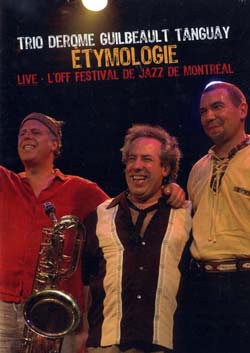
In Stock
Quantity in Basket: None
Log In to use our Wish List
Shipping Weight: 3.00 units
EU & UK Customers:
Discogs.com can handle your VAT payments
So please order through Discogs
Sample The Album:
Performers: Jean Derome-saxophones, flute, voice
Normand Guilbeault-doublebass
Pierre Tanguay-drums
Composers: Ernie Burnett
Jean Derome
Eric Dolphy
Duke Ellington
Richard Maltby
Misha Mengelberg
George A Norton
Lennie Tristano
Thomas Fats WallerComposers: Ernie Burnett
Jean Derome
Eric Dolphy
Duke Ellington
Richard Maltby
Misha Mengelberg
George A Norton
Lennie Tristano
Thomas Fats Waller
Click an artist name above to see in-stock items for that artist.
DVD-Video [NTSC, multi-region]: Surround 5.1 (Dolby Digital) + Stereo 2.0 (Dolby Digital) English Subtitles
UPC: 771028116690
Label: Ambiances Jazz
Catalog ID: AM_166
Squidco Product Code: 8333
Format: DVD
Condition: New
Released: 2007
Country: Canada
Packaging: DVD snap case
Recorded at the Lion d'Or for the L'Off Festival de Jazz de Montréal, on June 29, 2006
The Trio Derome, Guilbeault, Tanguay has been applying their approach to improvised music to challenging jazz standards over two excellent releases on the Montreal based Ambiances Magnetiques label since 2004. This, their third release, presents the music of Eric Dolphy, Duke Ellington, Lennie Tristano, Fats Waller, Misha Mengelberg, and Jean Derome himself. Incredible performers, they update the music and bring it to great levels in amazing and inspired interplay. This DVD gives the listener a chance to see these masters at work as they were on stage at the 2006 L'Off Festival of Jazz in Montreal. Highly recommended!
DVD-Video [NTSC, multi-region]: Surround 5.1 (Dolby Digital) + Stereo 2.0 (Dolby Digital) English Subtitles
Artist Biographies
• Show Bio for Normand Guilbeault "First and foremost a double-bass player, composer, jazz and musiqueactuelle performer, he is very active in the provincial and national musicscenes and is highly regarded in the field. The tone, rhythm, and style of Guilbeault explain why he has played with Montréal's most creativemusicians (Jean Derome, Robert Marcel Lepage, Pierre St-Jak, René Lussier,and others) and why he has recently teamed up with excellent singers (suchas Lou Babin and Geneviève Letarte). Out of his ambitious projects havecome accomplished and very inspired and spirited works (Hommage à Mingusand RIEL Plaidoyer Musical). Along with other musicians (Pierre St-Jak, François Marcaurelle, and Jean Vanasse) is also the prime mover, programplanner, and organizer behind the Montréal OFF Festival de Jazz, at whichhe presented the first part of his PARKEROUAC, a project wedding poetry andjazz. Normand Guilbeault, who first became known through his work with Jean Beaudet, Yannick Rieu, Nelson Symonds, Bernard Primeau, and other jazz musicians, has gained public acclaim with the Normand Guilbeault Ensemble (winner of the Prix de Jazz duMaurier at the 1994 Festival international de Jazz de Montréal), whose 1994 album Dualismus [Red Toucan] was followed by Basso Continuo in 1995 and, with guest artist Jean Derome, Hommage à Mingus in 1996 [both on Justin Time]. The Jazz Report Magazine (Canada) voted the ensemble "Acoustic Group of the year" for 1997. Since 1995 some of the people he has worked with have included Jean Derome (on music for film, theatre and dance, and as part of a jazz trio and a jazz quartet), René Lussier (Les Boudines, Pour un Punch Hawaiien, music for film), Robert Marcel Lepage (music for film, theatre and dance), Michel F Côté (Bruire / Les Chants Rupestres, and music for dance), and trombonist Tom Walsh with the group NOMA. In May 1998, the 15th Festival international de musique actuelle de Victoriaville opened with his most recent project, Riel, which brought together thirteen of Montréal's most creative musicians and two talented narrators. He also presented the work at the Open Waters Festival of New and Improvised Music in Halifax, and at the Lion d'Or in Montréal on 20 and 21 February 1999. Recordings of these concerts were used to produce the double album entitled Riel Plaidoyer musical / Musical Plea, which appeared on the Ambiances Magnétiques label [AM 073] on 15 November 1999. Recently, performance of Normand Guilbeault's Riel project, in Confederation Park, was one of a the highlights of the Ottawa International Jazz Festival (July 17, 2000)." ^ Hide Bio for Normand Guilbeault • Show Bio for Pierre Tanguay "Quebec City, Québec, 1956: Composer, Performer (drum set, percussion, voice) A percussionist, composer and inveterate inventor, Pierre Tanguay is one of the most sought-after Montréal musicians on the Quebec scene. Since the beginning of the 80s, he has participated in an impressive number of ensembles, including Jean Derome and the dangereux zhoms, Évidence, Castor et compagnie, the Jean-François Groulx Trio, the ODD (a danse orchestra), Villemure Ô Carré, the Pierre Cartier Ensemble and Projet Riel. Among his collaborators are Jean Derome, Normand Guilbeault, Pierre Langevin, René Lussier, Karen Young, Fred Frith, Michel Donato, Daniel Mille, André Duchesne and Antoine Berthiaume. He is very active in the fileds of medieval and traditional music, jazz and musique actuelle. He is the co-founder of Strada, Midi Tapant, Derome/Tanguay. He has composed works for dance (Lucie Grégoire, Andrew Harwood, Irène Stamou and Francine Gagné), as well as works for the theatre and film (Allan Booth, Imago and Roberto Ariganello). He regularly tours throughout Canada and Europe." ^ Hide Bio for Pierre Tanguay • Show Bio for Jean Derome "Jean Derome. Born Montréal, Québec, 1955. esidence: Montréal, Québec. Composer, Performer (saxophones (alto, baritone, soprano), flutes (flute, bass flute, piccolo, alto flute, recorders), keyboards, small wind instruments (ocarinas, jew's harp, game calls, toys...), percussion, invented instruments, voice) One of the most active and eclectic musicians on the Canadian creative music scene, Jean Derome has managed to earn the recognition of a larger public, a rare feat in that field. Thanks to his large-scale musique actuelle projects, his compositions, his work as an improviser, his jazz groups and his music for the screen and the stage, Derome ranks as a major creative force, in Québec and abroad. He is experienced and innovative on both saxophone and flute, and his unique writing style cannot be mistaken for anyone else's. Sensitive and powerful, his music often features a funny strike that makes its complex nature more inviting. Ever since Nébu (one of Québec's first avant-garde jazz groups) in the early '70s, Derome has been consistently renewing and diversifying his approach of composition. He impressed audience and critics first with the flute, then with the saxophone, as a lead character in the musique actuelle underground. He took part to the various artists' collectives looking for new ways to express themselves freely, without esthetic or social constraints, including the Ensemble de musique improvisée de Montréal. Later, in the early '80s, he co-founded Ambiances Magnétiques, a collective and record label that raised his profile at home and introduced his name to the outside world. Among his numerous projects, let us mention the duos Les Granules, Nous perçons les oreilles and Plinc! Plonc!, the dynamic group Jean Derome et les Dangereux Zhoms, and the large-scale projects Confitures de gagaku, Je me souviens - Hommage à Georges Perec and Canot-camping. Most of these projects are based on a unique form of synergy between composition, structured improvisation and genuine creative madness, all this articulated with unmatched playfulness. In 1992, Derome became the second artist to be presented with the Freddie Stone Award (bassist Lisle Ellis was the first). Besides improvising on a regular basis with Ambiances Magnétiques' members and appearing in their projects, Derome has also shared the stage with several musicians of international stature, among others Fred Frith, Lars Hollmer, Louis Sclavis and Han Bennink. He performs regularly all over Canada, in the US and in Europe. He received a Prix Opus in 2001 for his exposure abroad. Lately, jazz circles have been praising his undisputable qualities as a jazzman, thanks to the Thelonious Monk tribute project Évidence, the Normand Guilbeault Ensemble (whose Mingus Erectus CD is devoted to Charles Mingus' music), and the much-lauded Derome Guilbeault Tanguay Trio. Although Jean Derome writes tirelessly for his own projects, he is much in demand in the fields of film, theatre and dance. A short list of this side of his work would have to include his numerous scores for the National Film Board of Canada (NFB), especially for films by John Walker, Jacques Leduc, Fernand Bélanger and animated films by Pierre Hébert, Michèle Cournoyer and Jean Detheux; his incidental music for Théâtre UBU, Théâtre de Quat'Sous and Théâtre du Nouveau Monde; not forgetting his work with several top choreographers, including Louise Bédard, Andrew de Lotbinière Harwood, Daniel Soulières and Ginette Laurin. Other music ensembles have commissioned works from him, including Tuyo, Bradyworks, the Hard Rubber Orchestra from Vancouver and Fanfare Pourpour. Incidentally, Derome is the musical director of the latter. Over thirty years of music and 70 record credits later, Jean Derome still has sleeves bursting with tricks." ^ Hide Bio for Jean Derome • Show Bio for Eric Dolphy "Eric Allan Dolphy Jr. (June 20, 1928 - June 29, 1964) was an American jazz alto saxophonist, bass clarinetist and flautist. On a few occasions, he also played the clarinet and piccolo. Dolphy was one of several multi-instrumentalists to gain prominence in the same era. His use of the bass clarinet helped to establish the instrument within jazz. Dolphy extended the vocabulary and boundaries of the alto saxophone, and was among the earliest significant jazz flute soloists. His improvisational style was characterized by the use of wide intervals, in addition to employing an array of extended techniques to emulate the sounds of human voices and animals. He used melodic lines that were "angular, zigzagging from interval to interval, taking hairpin turns at unexpected junctures, making dramatic leaps from the lower to the upper register." Although Dolphy's work is sometimes classified as free jazz, his compositions and solos were often rooted in conventional (if highly abstracted) tonal bebop harmony." ^ Hide Bio for Eric Dolphy • Show Bio for Misha Mengelberg "Misha Mengelberg (5 June 1935 - 3 March 2017) was a Dutch jazz pianist and composer. A prominent figure in post-WWII European Jazz, Megelberg is known for his forays into free improvisation, for bringing humor into his music, and as a leading interpreter of songs by fellow pianists Thelonious Monk and Herbie Nichols. Mengelberg was born in Kiev, Ukrainian SSR, the son of the Dutch conductor Karel Mengelberg (born Karel Willem Joseph Mengelberg; 18 July 1902, Utrecht - 11 July 1984, Amsterdam) and grand-nephew of conductor Willem Mengelberg. Karel Mengelberg was a Dutch composer and conductor, who worked in Berlin, Barcelona, Kiev and Amsterdam. A notable work of his was 'Catalunya Renaixent', written for the Banda Municipal of Barcelona in 1934. Misha's family moved back to the Netherlands in the late 1930s and he began learning the piano at age five. Mengelberg briefly studied architecture before entering the Royal Conservatory in The Hague, where he studied music from 1958-64. While there he won the first prize at a jazz festival in Loosdrecht and became associated with Fluxus. His early influences included Thelonious Monk, Duke Ellington and John Cage, whom he heard lecture at Darmstadt. Mengelberg won the Gaudeamus International Composers Award in 1961. Among his first recordings was among Eric Dolphy's last, Last Date (1964). Also on that record was the drummer Han Bennink, and the two of them, together with saxophonist Piet Noordijk, formed a quartet which had a number of different bassists, and which played at the Newport Jazz Festival in 1966. In 1967 he co-founded the Instant Composers Pool, an organisation which promoted avant garde Dutch jazz performances and recordings, with Bennink and Willem Breuker. He was co-founder of STEIM in Amsterdam in 1969. Mengelberg played with a large variety of musicians. He often performed in a duo with fellow Dutchman Bennink, with other collaborators including Derek Bailey, Peter Brötzmann, Evan Parker, Anthony Braxton, and (on the flip side of a live recording with Dolphy) his pet parrot. He was also one of the earliest exponents of the work of the once-neglected pianist Herbie Nichols. He also wrote music for others to perform (generally leaving some room for improvisation) and oversaw a number of music theatre productions, which usually included a large element of absurdist humour. A 2006 DVD release, Afijn (ICP/Data), is a primer on Mengelberg's life and work, containing an 80-minute documentary and additional concert footage.[citation needed] Mengelberg died in Amsterdam on 3 March 2017, aged 81, from undisclosed causes." ^ Hide Bio for Misha Mengelberg • Show Bio for Jean Derome "Jean Derome. Born Montréal, Québec, 1955. esidence: Montréal, Québec. Composer, Performer (saxophones (alto, baritone, soprano), flutes (flute, bass flute, piccolo, alto flute, recorders), keyboards, small wind instruments (ocarinas, jew's harp, game calls, toys...), percussion, invented instruments, voice) One of the most active and eclectic musicians on the Canadian creative music scene, Jean Derome has managed to earn the recognition of a larger public, a rare feat in that field. Thanks to his large-scale musique actuelle projects, his compositions, his work as an improviser, his jazz groups and his music for the screen and the stage, Derome ranks as a major creative force, in Québec and abroad. He is experienced and innovative on both saxophone and flute, and his unique writing style cannot be mistaken for anyone else's. Sensitive and powerful, his music often features a funny strike that makes its complex nature more inviting. Ever since Nébu (one of Québec's first avant-garde jazz groups) in the early '70s, Derome has been consistently renewing and diversifying his approach of composition. He impressed audience and critics first with the flute, then with the saxophone, as a lead character in the musique actuelle underground. He took part to the various artists' collectives looking for new ways to express themselves freely, without esthetic or social constraints, including the Ensemble de musique improvisée de Montréal. Later, in the early '80s, he co-founded Ambiances Magnétiques, a collective and record label that raised his profile at home and introduced his name to the outside world. Among his numerous projects, let us mention the duos Les Granules, Nous perçons les oreilles and Plinc! Plonc!, the dynamic group Jean Derome et les Dangereux Zhoms, and the large-scale projects Confitures de gagaku, Je me souviens - Hommage à Georges Perec and Canot-camping. Most of these projects are based on a unique form of synergy between composition, structured improvisation and genuine creative madness, all this articulated with unmatched playfulness. In 1992, Derome became the second artist to be presented with the Freddie Stone Award (bassist Lisle Ellis was the first). Besides improvising on a regular basis with Ambiances Magnétiques' members and appearing in their projects, Derome has also shared the stage with several musicians of international stature, among others Fred Frith, Lars Hollmer, Louis Sclavis and Han Bennink. He performs regularly all over Canada, in the US and in Europe. He received a Prix Opus in 2001 for his exposure abroad. Lately, jazz circles have been praising his undisputable qualities as a jazzman, thanks to the Thelonious Monk tribute project Évidence, the Normand Guilbeault Ensemble (whose Mingus Erectus CD is devoted to Charles Mingus' music), and the much-lauded Derome Guilbeault Tanguay Trio. Although Jean Derome writes tirelessly for his own projects, he is much in demand in the fields of film, theatre and dance. A short list of this side of his work would have to include his numerous scores for the National Film Board of Canada (NFB), especially for films by John Walker, Jacques Leduc, Fernand Bélanger and animated films by Pierre Hébert, Michèle Cournoyer and Jean Detheux; his incidental music for Théâtre UBU, Théâtre de Quat'Sous and Théâtre du Nouveau Monde; not forgetting his work with several top choreographers, including Louise Bédard, Andrew de Lotbinière Harwood, Daniel Soulières and Ginette Laurin. Other music ensembles have commissioned works from him, including Tuyo, Bradyworks, the Hard Rubber Orchestra from Vancouver and Fanfare Pourpour. Incidentally, Derome is the musical director of the latter. Over thirty years of music and 70 record credits later, Jean Derome still has sleeves bursting with tricks." ^ Hide Bio for Jean Derome • Show Bio for Eric Dolphy "Eric Allan Dolphy Jr. (June 20, 1928 - June 29, 1964) was an American jazz alto saxophonist, bass clarinetist and flautist. On a few occasions, he also played the clarinet and piccolo. Dolphy was one of several multi-instrumentalists to gain prominence in the same era. His use of the bass clarinet helped to establish the instrument within jazz. Dolphy extended the vocabulary and boundaries of the alto saxophone, and was among the earliest significant jazz flute soloists. His improvisational style was characterized by the use of wide intervals, in addition to employing an array of extended techniques to emulate the sounds of human voices and animals. He used melodic lines that were "angular, zigzagging from interval to interval, taking hairpin turns at unexpected junctures, making dramatic leaps from the lower to the upper register." Although Dolphy's work is sometimes classified as free jazz, his compositions and solos were often rooted in conventional (if highly abstracted) tonal bebop harmony." ^ Hide Bio for Eric Dolphy • Show Bio for Misha Mengelberg "Misha Mengelberg (5 June 1935 - 3 March 2017) was a Dutch jazz pianist and composer. A prominent figure in post-WWII European Jazz, Megelberg is known for his forays into free improvisation, for bringing humor into his music, and as a leading interpreter of songs by fellow pianists Thelonious Monk and Herbie Nichols. Mengelberg was born in Kiev, Ukrainian SSR, the son of the Dutch conductor Karel Mengelberg (born Karel Willem Joseph Mengelberg; 18 July 1902, Utrecht - 11 July 1984, Amsterdam) and grand-nephew of conductor Willem Mengelberg. Karel Mengelberg was a Dutch composer and conductor, who worked in Berlin, Barcelona, Kiev and Amsterdam. A notable work of his was 'Catalunya Renaixent', written for the Banda Municipal of Barcelona in 1934. Misha's family moved back to the Netherlands in the late 1930s and he began learning the piano at age five. Mengelberg briefly studied architecture before entering the Royal Conservatory in The Hague, where he studied music from 1958-64. While there he won the first prize at a jazz festival in Loosdrecht and became associated with Fluxus. His early influences included Thelonious Monk, Duke Ellington and John Cage, whom he heard lecture at Darmstadt. Mengelberg won the Gaudeamus International Composers Award in 1961. Among his first recordings was among Eric Dolphy's last, Last Date (1964). Also on that record was the drummer Han Bennink, and the two of them, together with saxophonist Piet Noordijk, formed a quartet which had a number of different bassists, and which played at the Newport Jazz Festival in 1966. In 1967 he co-founded the Instant Composers Pool, an organisation which promoted avant garde Dutch jazz performances and recordings, with Bennink and Willem Breuker. He was co-founder of STEIM in Amsterdam in 1969. Mengelberg played with a large variety of musicians. He often performed in a duo with fellow Dutchman Bennink, with other collaborators including Derek Bailey, Peter Brötzmann, Evan Parker, Anthony Braxton, and (on the flip side of a live recording with Dolphy) his pet parrot. He was also one of the earliest exponents of the work of the once-neglected pianist Herbie Nichols. He also wrote music for others to perform (generally leaving some room for improvisation) and oversaw a number of music theatre productions, which usually included a large element of absurdist humour. A 2006 DVD release, Afijn (ICP/Data), is a primer on Mengelberg's life and work, containing an 80-minute documentary and additional concert footage.[citation needed] Mengelberg died in Amsterdam on 3 March 2017, aged 81, from undisclosed causes." ^ Hide Bio for Misha Mengelberg
10/30/2024
Have a better biography or biography source? Please Contact Us so that we can update this biography.
10/30/2024
Have a better biography or biography source? Please Contact Us so that we can update this biography.
10/30/2024
Have a better biography or biography source? Please Contact Us so that we can update this biography.
10/30/2024
Have a better biography or biography source? Please Contact Us so that we can update this biography.
10/30/2024
Have a better biography or biography source? Please Contact Us so that we can update this biography.
10/30/2024
Have a better biography or biography source? Please Contact Us so that we can update this biography.
10/30/2024
Have a better biography or biography source? Please Contact Us so that we can update this biography.
10/30/2024
Have a better biography or biography source? Please Contact Us so that we can update this biography.
Track Listing:
1. Miss Ann (Dolphy) 5:02
2. 245 (Dolphy) 8:24
3. Fleurette Africaine (Ellington) 10:18
4. Étymologie (Derome) 5:09
5. A Bit Nervous (Mengelberg) 8:47
6. Jitterbug Waltz (Maltby, Waller) 9:44
8. Fluide (Derome) 5:55
DVD
Ambiances Magnetiques
Improvised Music
Musique Actuelle
Jazz
Jean Derome
June 2007
Trio Recordings
Canadian Composition & Improvisation
Search for other titles on the label:
Ambiances Jazz.


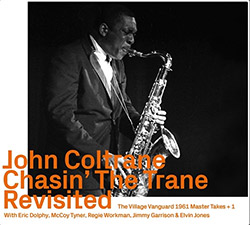

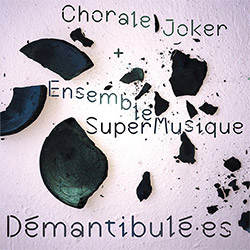



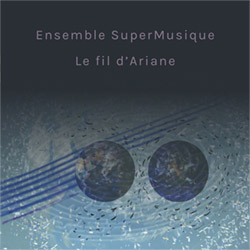
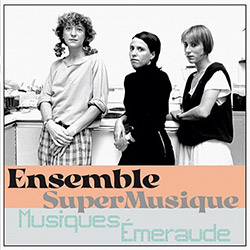
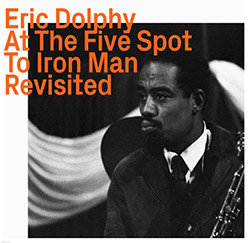

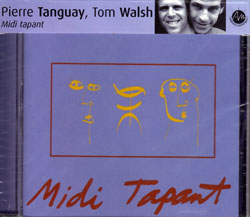
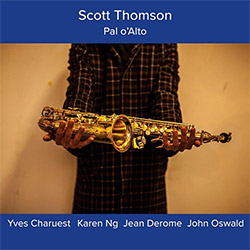

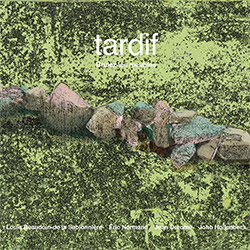
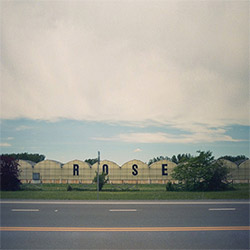
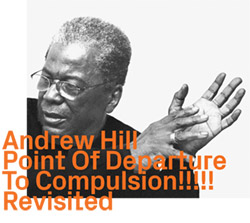

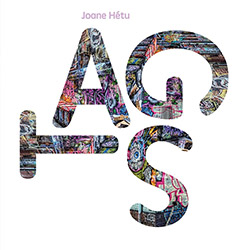

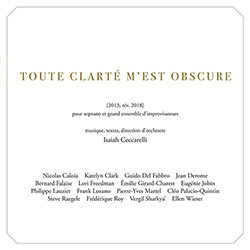
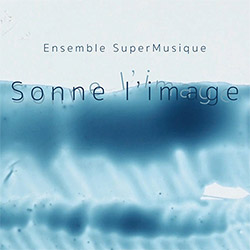








![Musicworks Magazine: #149 Fall 2024 [MAGAZINE + CD]](https://www.teuthida.com/productImages/misc4/35470.jpg)

![Nevai, Nandor: <<The PRICE of FRONTIER>> Book 1: FULK [BOOK + 4 CDs]](https://www.teuthida.com/productImages/misc4/35464.jpg)
![Nevai, Nandor: <<The PRICE of FRONTIER>> Book 2: MARTIAL [BOOK + 4 CDs]](https://www.teuthida.com/productImages/misc4/35465.jpg)
![Nevai, Nandor: <<The PRICE of FRONTIER>> Book 3: JASSOM [BOOK + 4 CDs]](https://www.teuthida.com/productImages/misc4/35466.jpg)
![Nevai, Nandor: <<The PRICE of FRONTIER>> Book 4: HARD-WON [BOOK + 4 CDs]](https://www.teuthida.com/productImages/misc4/35467.jpg)



![Elephant9 with Terje Rypdal: Catching Fire [VINYL 2 LPs]](https://www.teuthida.com/productImages/misc4/35355.jpg)
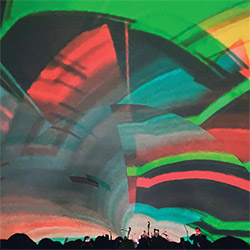
![Mazurek, Rob & Exploding Star Orchestra: Live at Adler Planetarium [VINYL]](https://www.teuthida.com/productImages/misc4/35233.jpg)
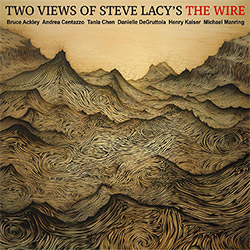
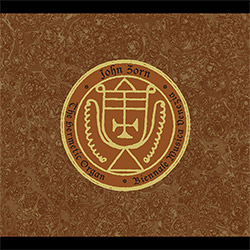
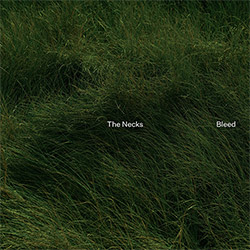
![Necks, The: Bleed [VINYL BLACK]](https://www.teuthida.com/productImages/misc4/35250.jpg)
![Necks, The: Bleed [VINYL GREEN + DOWNLOAD]](https://www.teuthida.com/productImages/misc4/35251.jpg)
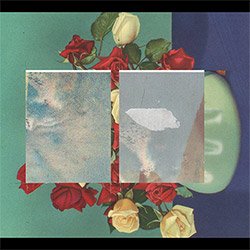



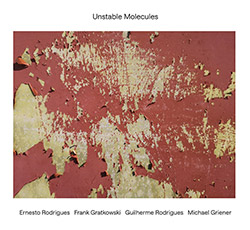
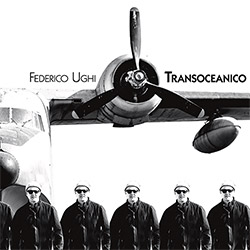
![Attias, Michael (Attias / Leibson / Pavolka / Ferber / Hoffman): Quartet Music Vol. I: LuMiSong [VINYL]](https://www.teuthida.com/productImages/misc4/34878.jpg)
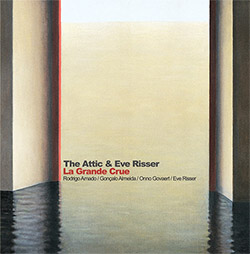
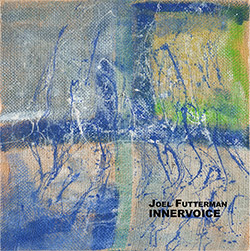

![Cunningham, Alex / Eli Wallace : The Terrible Habit Of Theatre [VINYL]](https://www.teuthida.com/productImages/misc4/35351.jpg)
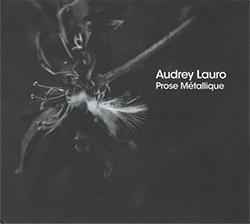
![Hoffman, Christopher (feat. Henry Threadgill / Anna Webber): Vision Is The Identity [VINYL]](https://www.teuthida.com/productImages/misc4/34877.jpg)

![Gregg, J.J. / Pavan Kanekal: Ease & Flow [CD + DOWNLOAD]](https://www.teuthida.com/productImages/misc4/35335.jpg)
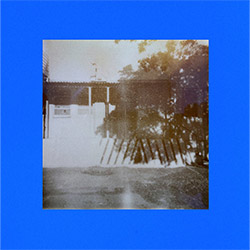
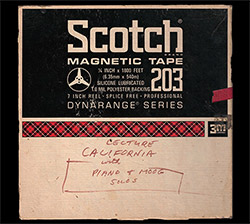
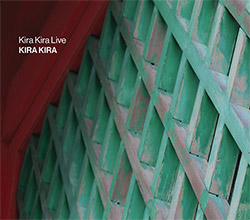
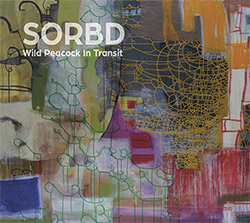
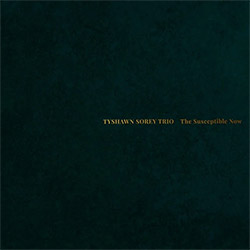



![DNS: Taking Big Bites Of The Khandas Three Cafes Deep [2 CDs]](https://www.teuthida.com/productImages/misc4/35334.jpg)




![Cleaver, Gerald: The Process [VINYL]](https://www.teuthida.com/productImages/misc4/34966.jpg)




![Alva Noto: HYbr:ID II [VINYL 2 LPs]](https://www.teuthida.com/productImages/misc4/35201.jpg)

![Baron, Derek / Luke Martin: Distinct and Concealed [CASSETTE + DOWNLOAD]](https://www.teuthida.com/productImages/misc4/35079.jpg)

![Lyle, Erica Dawn : Colonial Motels [CASSETTE + DOWNLOAD]](https://www.teuthida.com/productImages/misc4/35080.jpg)







![Alva Noto: HYbr:ID III [VINYL 2 LPs]](https://www.teuthida.com/productImages/misc4/35011.jpg)
![Kubisch, Christina / Trondheim Voices: Stromsanger 2022 For Six Voices And Electromagnetic Waves [VINYL]](https://www.teuthida.com/productImages/misc4/34628.jpg)
![Ristic, Manja / Joana Guerra / Veronica Cerrotta: Slani pejzazi [CASSETTE + DOWNLOAD]](https://www.teuthida.com/productImages/misc4/34928.jpg)
![Euro Herc: Segnali [CASSETTE + DOWNLOAD]](https://www.teuthida.com/productImages/misc4/34929.jpg)







![Zurria, Manuel: Fame di Vento [3 CDs]](https://www.teuthida.com/productImages/misc4/35167.jpg)

![Granberg, Magnus / Nattens Inbrott / Skogen: Holde Traume, Kehret Wieder! [2 CDs]](https://www.teuthida.com/productImages/misc4/35038.jpg)
![Frey, Jurg: Outermost Melodie [2 CDs]](https://www.teuthida.com/productImages/misc4/35039.jpg)

![Pavone, Jessica: Reverse Bloom [VINYL]](https://www.teuthida.com/productImages/misc4/34895.jpg)




![Modney (Modney / Wooley / Gentile / Roberts / Pluta / Symthe / ...): Ascending Primes [2 CDs]](https://www.teuthida.com/productImages/misc4/34852.jpg)






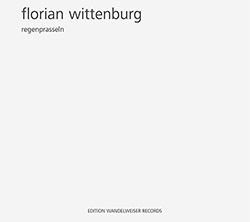

![Kirschner, Kenneth / Joseph Branciforte: From the Machine: Volume 1 [VINYL]](https://www.teuthida.com/productImages/misc4/30767.jpg)
![Golub, Phillip: Filters [VINYL + DOWNLOAD]](https://www.teuthida.com/productImages/misc4/32379.jpg)
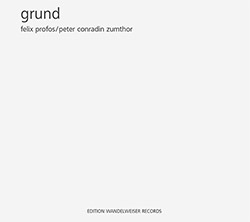

![Deerlady (Obomsawin, Mali / Magdalena Abrego): Greatest Hits [VINYL]](https://www.teuthida.com/productImages/misc4/34876.jpg)




![Haino, Keiji: Black Blues [2 CDs]](https://www.teuthida.com/productImages/misc4/35109.jpg)



![Surplus 1980: Illusion of Consistency [CD]](https://www.teuthida.com/productImages/misc4/35069.jpg)
![Staiano, Moe: Away Towards the Light [VINYL + DOWNLOAD]](https://www.teuthida.com/productImages/misc4/35037.jpg)




![Caveira (Gomes / Sousa / Abras / Ferrandini): Ficar Vivo [VINYL]](https://www.teuthida.com/productImages/misc4/34643.jpg)
![Gregg, J. J. / David Van Auken: Lunar Prairie [CD w/ DOWNLOAD]](https://www.teuthida.com/productImages/misc4/34611.jpg)

![Coultrain: Mundus [VINYL]](https://www.teuthida.com/productImages/misc4/32439.jpg)
![Mattin: Songbook #6 [VINYL]](https://www.teuthida.com/productImages/misc4/27317.jpg)
![Punkappella: Wake Up [7-inch VINYL]](https://www.teuthida.com/productImages/misc4/17519.jpg)
![Residents, The: WARNING: UNiNC.: Live And Experimental Recordings 1971-1972 [VINYL 2 LPs]](https://www.teuthida.com/productImages/misc4/31521.jpg)
![Coultrain: Phantasmagoria [VINYL]](https://www.teuthida.com/productImages/misc4/30142.jpg)
![Lennon, Sean Ono: Asterisms [VINYL]](https://www.teuthida.com/productImages/misc4/34517.jpg)

![Rotem Geffen: The Night Is The Night [VINYL]](https://www.teuthida.com/productImages/misc4/34631.jpg)

![Coley, Byron: Dating Tips for Touring Bands [VINYL]](https://www.teuthida.com/productImages/misc4/17906.jpg)

![Lost Kisses: My Life is Sad & Funny [DVD]](https://www.teuthida.com/productImages/misc4/lostKissesDVD.jpg)